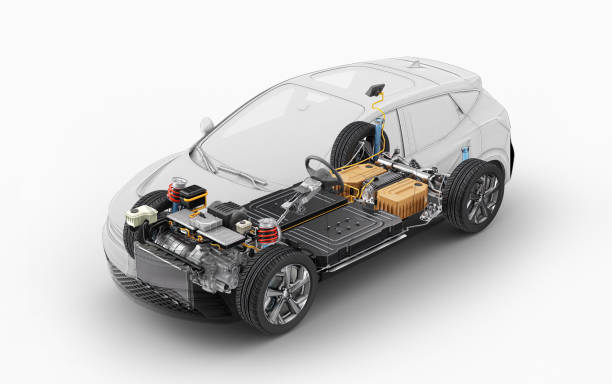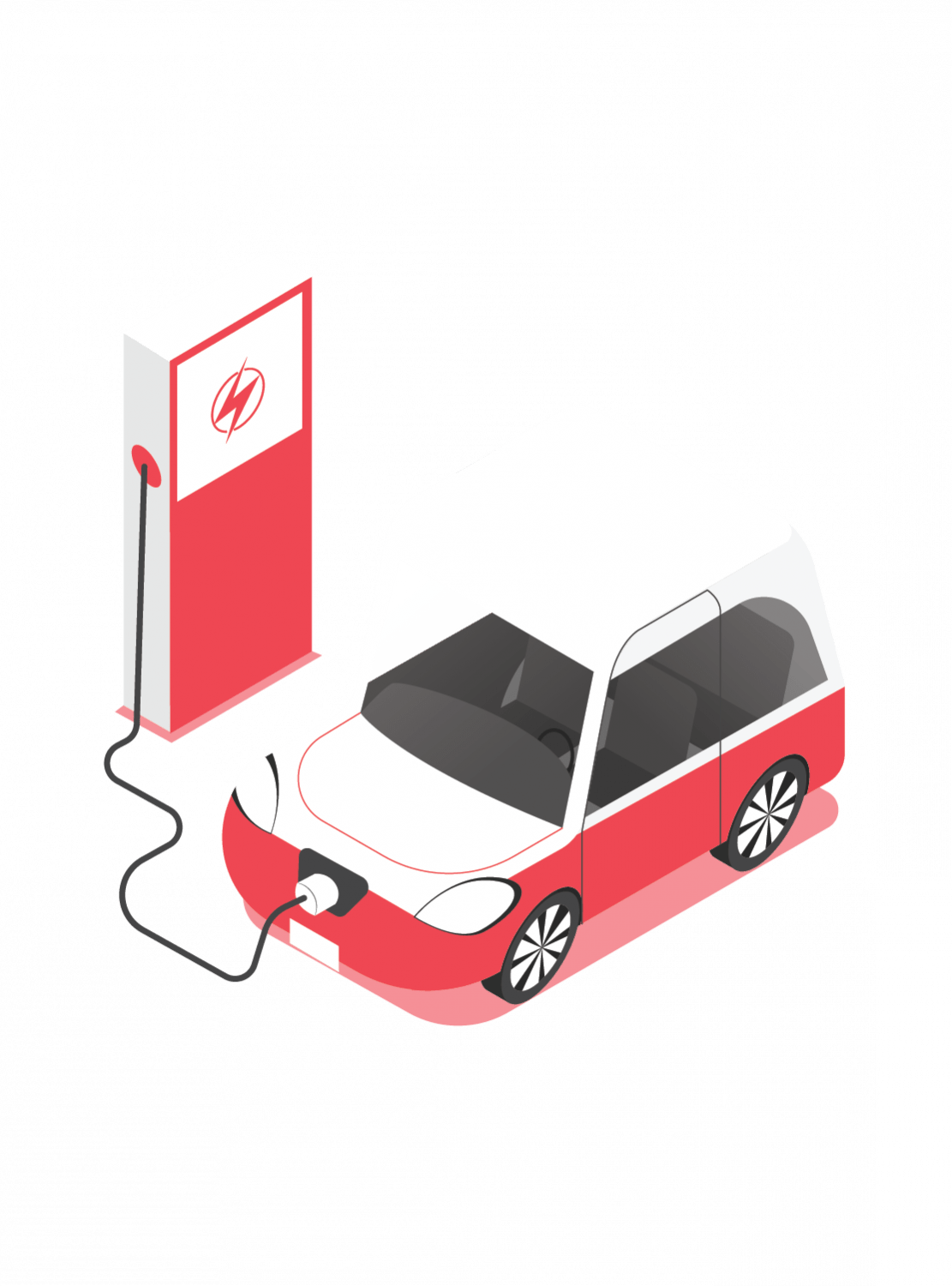How EV Battery Labs Are Powering the Future of Green Mobility
What if your college could become the next innovation hub for electric vehicle battery technology? With the right infrastructure like an EV Battery Lab and COE Battery Lab, it’s not just possible—it’s happening now across India!
As the world transitions towards cleaner, greener alternatives to fossil fuels, electric vehicles (EVs) have emerged as the future of transportation. India, too, is experiencing a shift toward sustainable mobility, fueled by government incentives, rising fuel costs, and an increasing awareness of climate change. Amid this transformative wave, the role of EV Battery Lab and COE EV Battery Lab becomes critical in training the next generation of engineers, innovators, and researchers—especially in the field of EV battery technology.

Awareness of factors such as preferred weather and temperature, battery life, and safety on rough terrains can help EV enthusiasts make informed choices. EV owners can also play a role in aiding battery recycling and repurposing efforts, and various brands have begun battery warranty programs that replace the battery as soon as it begins to lose capacity or performance.
What is an EV Battery Lab?
An EV Battery Lab is a dedicated educational and research facility focused on the design, testing, and integration of EV batteries in electric vehicles. These labs provide practical, hands-on training with real EV components such as electric motors, battery management systems (BMS), charging infrastructure, and especially lithium-ion EV batteries. EV Battery Labs bridge the gap between theoretical concepts and practical implementation.
The exposure gained through these labs enables students to build EV battery prototypes and testing setups, aligning their knowledge with current industry requirements. Want to explore the EV battery lab setup in detail? Visit our page on EV Battery Lab Solutions by ISIEINDIA.
Understanding COE EV Battery Lab
The COE EV Battery Lab or Center of Excellence in EV Battery Technology is an advanced facility aimed at nurturing innovation, research, and practical skill development. From Li-ion battery technology to energy storage systems and fast charging, these labs empower students to become future-ready professionals in EV battery systems.
These labs are supported by government bodies and aligned with NEP 2020, ensuring their relevance in today’s academic and industrial ecosystems. Curious how a COE Battery Lab looks like? Learn more about our COE EV Lab Infrastructure.
Benefits of EV Battery Lab and COE Battery Lab in Institutions
Integrating a COE EV Battery Lab or EV Battery Lab into your curriculum offers multi-dimensional benefits:
- Battery-Focused Curriculum: Specialize in battery systems, charging cycles, and thermal management.
- Industry Collaboration: Gain exposure through tie-ups with top EV battery manufacturers and startups.
- Skill Certification: Provide students with industry-recognized certifications in EV and battery technology.
- Innovation Hub: Enable patent filing, startup incubation, and battery-based project development.
Don’t miss our Executive PG Certification Program in EV Engineering—an ideal addition for COE-equipped institutions.
Core Components of an EV Battery Lab
A fully equipped EV Battery Lab typically includes:
- Advanced EV Battery Packs (2W/3W/4W)
- Battery Management System (BMS)
- Thermal Management Modules
- Charging Station Setup (AC/DC)
- Battery Testing Equipment
- Simulation & Diagnostic Tools
Want a deeper look at EV battery technology used in these labs? Read our expert Li-ion Battery Guide.
Future Scope: India’s Vision for EV Batteries
With India’s government actively promoting EV adoption through FAME and PLI schemes, EV Battery Lab and COE Battery Lab are playing a crucial role in developing a skilled workforce focused on EV battery systems and innovations.
Educational institutions adopting this model are already seeing better student placements, industrial collaborations, and recognition in the EV battery domain. Be part of this change with ISIEINDIA’s COE EV Battery Lab.
Partnerships and Real-Time Applications
At ISIEINDIA, our labs go beyond setup—we ensure outcome-based learning with:
- Corporate tie-ups in battery innovation
- Real-world battery projects
- Student internships in battery-focused roles
- Faculty training in EV battery design and BMS
Our labs are aligned with AICTE, MSME, NSDC, and other bodies to ensure industry relevance.
Why Choose ISIEINDIA?
ISIEINDIA offers India’s most advanced EV Battery Lab and COE EV Battery Lab tailored for academic institutions:
- Battery-focused lab setup and training modules
- Hands-on practical exposure in EV battery technologies
- Government-recognized certifications
- Complete support from planning to execution
Explore our full range of EV Battery Lab solutions today!
Final Thoughts
In the fast-evolving EV world, institutions investing in EV Battery Lab and COE Battery Lab are creating the next-gen battery experts. From advanced curriculum integration to global career pathways, the impact is massive.
Whether you’re an educator, director, or decision-maker—empowering your students starts with the right infrastructure. Begin the journey into EV battery excellence with ISIEINDIA EV Battery Lab and COE Lab today.
Get in touch now to build your EV battery-focused lab infrastructure with ISIEINDIA.
To conclude
Understanding these nuances helps EV owners, fleet operators, and prospective buyers. It’s important to note that while LFP batteries might offer better safety and thermal performance, they typically have a lower energy density than NMC or NCA batteries. This trade-off must be considered when choosing the right battery for specific driving environments, especially in terms of range and performance requirements.
Prospective EV buyers should consider their driving habits, climate, and charging infrastructure when selecting a vehicle. Those in hotter climates might lean towards EVs that come with LFP batteries, while those in moderate climates could consider NMC or NCA powered EVs for a longer range.
In terms of aiding battery recycling and repurposing efforts, EV owners can contribute by choosing vehicles with batteries that have a well-established recycling chain. The choice of battery chemistry can further enhance safety, with LFP, NMC, and LTO being notable examples of battery chemistry with a strong safety profile. The types of EV batteries are diversifying, but Lithium ion batteries are expected to be a mainstay of electric transit for the foreseeable future.



